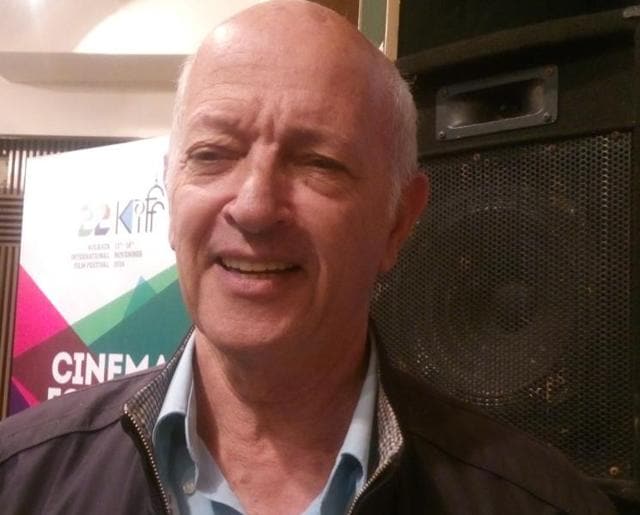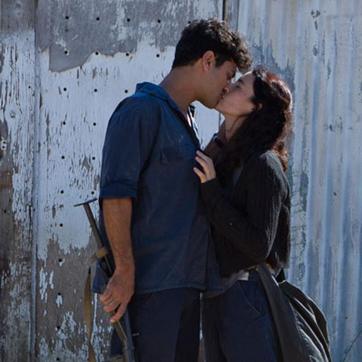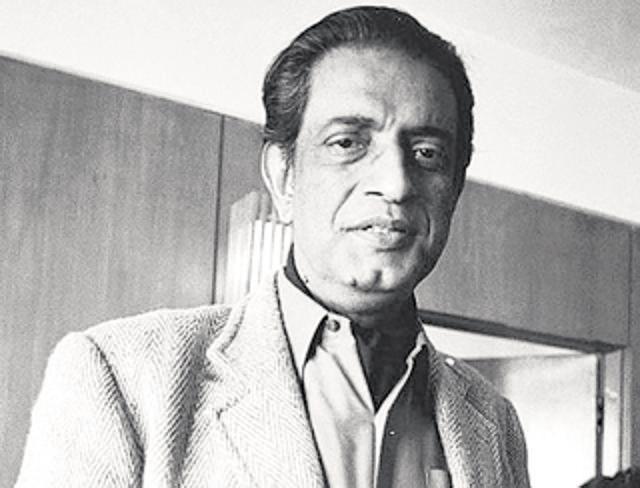Indian cinema doesn’t necessarily mean Bollywood: Dan Wolman
Israeli filmmaker Dan Wolman’s film An Israeli Love Story was recently screened at the 22nd Kolkata International Film Festival.
Israeli filmmaker Dan Wolman remembers Satyajit Ray as a ‘very tall man’. Wolman says he met the Pather Panchali maker in Berlin in 1973. “I shook his hands. He was so tall. I have seen The Apu Trilogy and Devi,” says Wolman, a self-confessed Ray fan, who is in Kolkata to screen his 93-minute film, An Israeli Love Story, at the 22nd Kolkata International Film Festival.

Interestingly, Wolman is not new to India. He has travelled extensively across the country and has been to Lucknow, Bangalore, Pune, Delhi, Thiruvananthapuram and Mumbai to attend various film festivals. In fact, he has also written a script, based on an incident which happened in India. He says if he finds a producer, he is willing to shoot it in India too. He also doesn’t rule out the possibility of casting Indian actors in it.
Since Wolman has been the jury in various Indian film festivals, he knows a lot about Indian cinema. “India is like a thousand countries in one. Now, filmmaking is cheaper because you can make it on your mobile phones. Indian cinema doesn’t necessarily mean Bollywood and song and dance sequences. Entertaining Indian experimental films are being made on low budgets,” says Wolman, who has made shorts, documentaries and television serials too. He has also dabbled in theatre.

Wolman’s recent film, An Israeli Love Story, starring Israeli actors Adi Bielski and Aviv Alush, is set in 1947. It tells the story of 18-year-old aspiring actress Margalit, who lives in northern Israel. She falls in love with Eli Ben Zvi from Kibbutz Beit Keshet. On the day they were supposed to get married, tragedy strikes. The film is based on a play written by Pnina Gary. The film is based on the real-life incident of Gary (now 89), who was supposed to marry Eli, the son of Rachel Yanait and Yitzhak Ben-Zvi (later to be the second president of Israel). In 1948, during Israel’s war for independence, her would-be husband was killed in an Arab ambush.
“Gary was looking for a producer to make this film. She approached me because she thought I am a specialist in making low-budget films. I read the story and was touched by it. The film talks about the period of 1947 when Arabs and Jews were fighting over the land of Palestine. I tried to make a balanced film. The film is told from the point of view of an Israeli woman, who had a tragic story to tell,” says Wolman.

The director, who made films such as The Dreamer and Floch, said that in the last 15 years there’s been a tremendous progress in Israeli cinema. He also says that Israel has nearly 18 film schools, thus increasing the competition among filmmakers.
“Imagine a country, with eight million population, has approximately 18 film schools? Every year 100-150 women and men come out of these schools. They are writing screenplays and making films. So, there’s a lot of competition too,” signs off Wolman.





